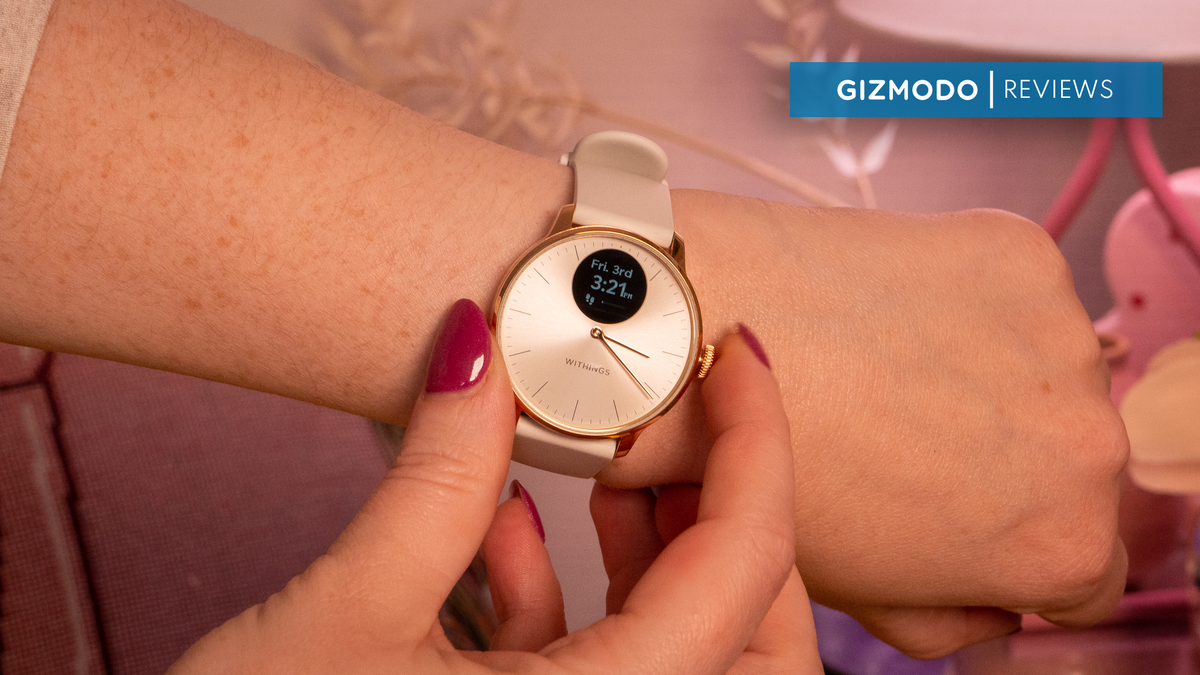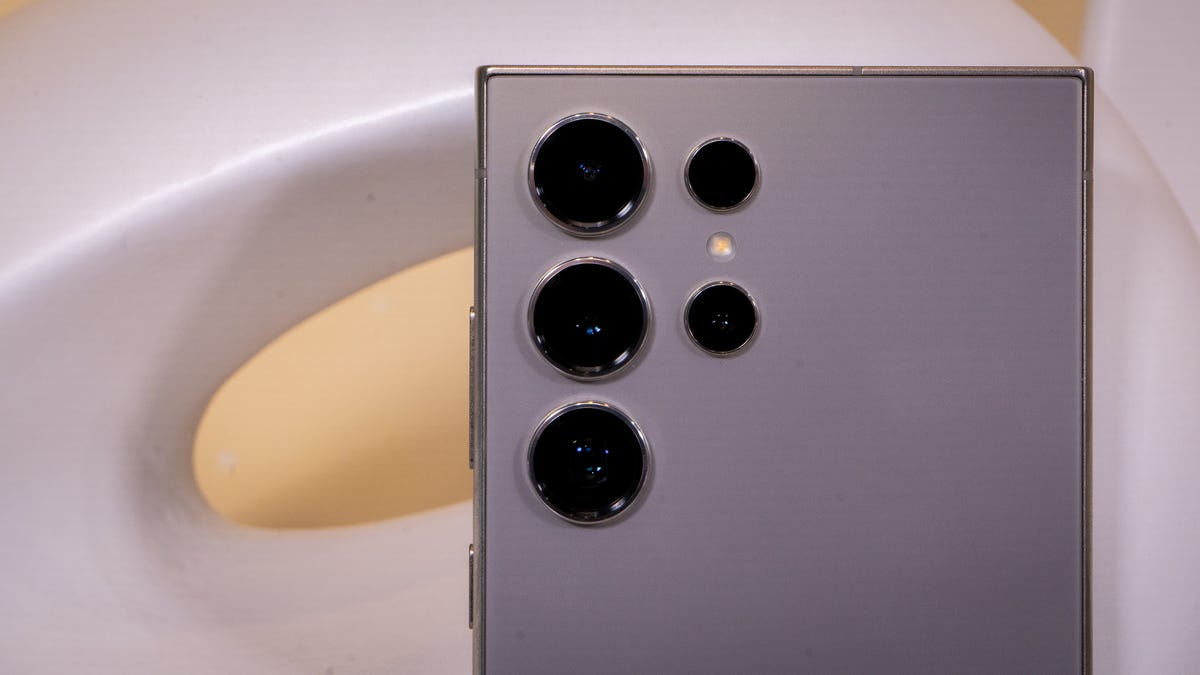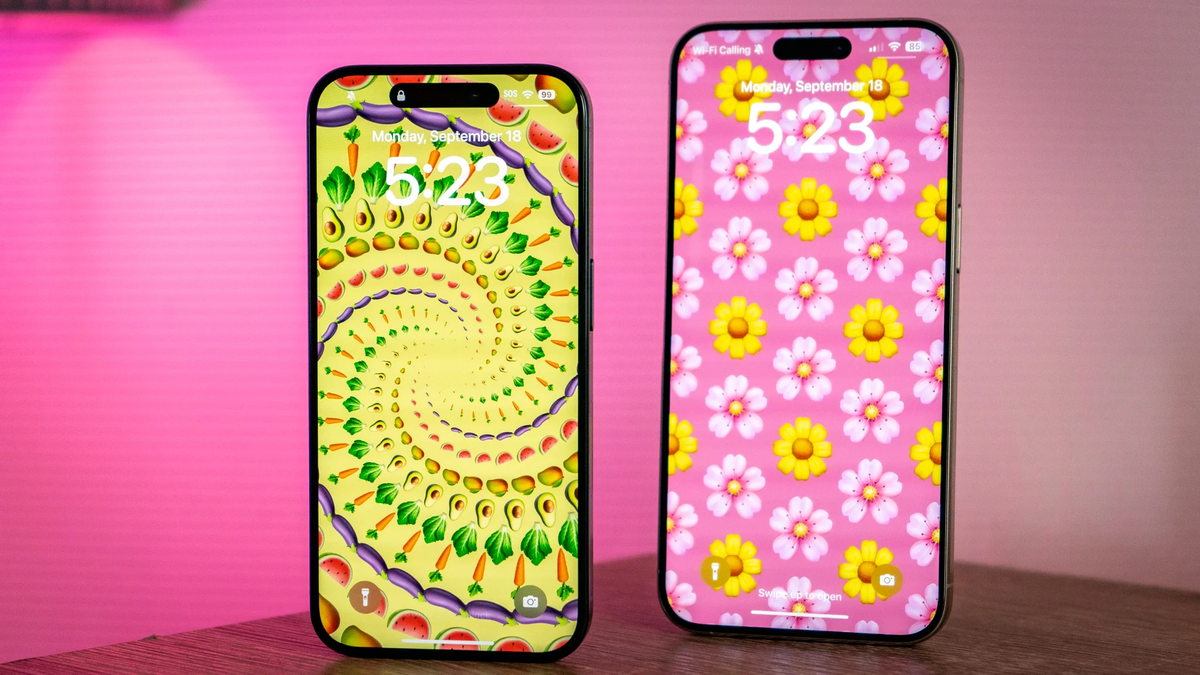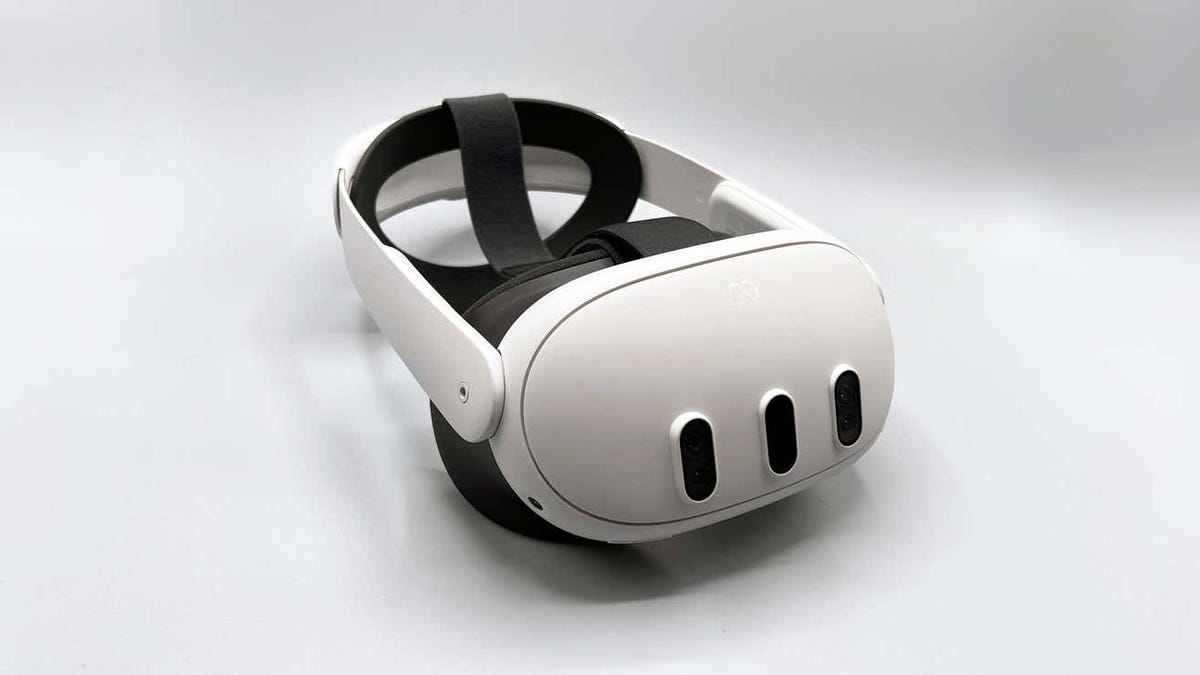WiThings ScanWatch Light
This hybrid smartwatch tracks essential daily wellness and health data without being too overbearing.
The WiThings ScanWatch Light is a fashionable watch with a small profile and interchangeable bands. It’s best considered for casual users who want more of an analog watch than a smartwatch that blares notifications.
$250
Pros
Light enough to wear all day and night
Long battery life in analog mode
Period tracking on the watch
Cons
Screen font may be too small for some to see
No GPS
Missing sensors from other similarly-priced smartwatches
Apple Watch wearers seem to want a smartwatch that isn’t the Apple Watch. At least, that’s the impression I got while wearing the WiThings Scanwatch Light out in the world. I was getting constant compliments from friends and passersby, mainly from those who lean femme and were card-carrying iOS users. “Can you use that with the iPhone?” they asked me. “Yes,” I’d reply. “But I’m currently testing it with Android.”
I enjoyed my time with the Scanwatch Light. It is almost the perfect smartwatch for tracking between intense workouts and training periods since it’s stylish and accrues data you’d get otherwise with a fitness band or regular smartwatch. It is approachable for folks who want to start wellness tracking and aren’t trying to be hardcore about it at a reasonable price point.
The ScanWatch Light is not a smartwatch to consider if you seek nuanced data on your runs and walks. While it keeps track of steps, sleep, breathing, and heart rate, it’s missing features like GPS. Going for a hike with this pretty smartwatch will track it, but it’ll miss crucial data like elevation gain. I didn’t realize how much I liked having that data until I put aside the Google Pixel Watch 2. It immediately reminded me of what you give up when you choose form over function.
Scanwatch Light Design
A watch-sized smartwatch
The 18mm Scanwatch Light fits just right for those with smaller wrists. The watch’s chassis is 37mm in diameter, which makes it smaller than the standard 40mm that most other smartwatches start at. The silicone band is comfortable for sleeping, running, jumping, and swimming, and then it doubles as a fashionable accessory after you switch from a sports top to a blouse. You can swap bands in and out as you please, but the watch’s relative thinness will require you to look for bands that don’t overpower the watch itself.
WiThings sent me the Scanwatch Light in the Sand variant with a rose gold chassis, but it’s available in other color options, including a blue or green screen with various watchbands. It’s water resistant up to 5 ATM, so it’s OK for swimming laps at the pool or quickly showering off after the gym.
The upside to the Scanwatch Light being a hybrid watch is it can promise up to 30 days of battery on a single charge. However, that’s if you keep notifications and most features off, like respiratory scanning or the quick look feature, which turns on the 1-inch display to show the time digitally. While using the Scanwatch Light and receiving messages, I charged the watch every 8 to 10 days. But when I turned off those notifications, I noticed the watch could last for days with 20% battery life. I’ve yet to get a full 30-day battery from the Scanwatch Light. But so far, I’ve had no battery anxiety while being out of the house with this thing on.
The Scanwatch Light charges with a little adapter that comes in the box. Since it doesn’t have an attached cable, it’s easy to lose, and I’ve already had to recover it from a pile of stuff during the review period.
Scanwatch Light Display
A tiny little screen
The Scanwatch Light is a hybrid watch. It relies on the actual hour and minute hands to tell the time, though you can also see the time digitally when you raise your wrist on the 1-inch grayscale OLED display. But you can’t do much else on that screen besides cycle through a few options. It was nice to look down, see the time, and not be distracted by an errant notification I had yet to deal with.
Notifications that come through on that tiny screen are terse. You’ll see who is pinging you and on which app, but you won’t get the full extent of the message or the context by simply raising your wrist. That’s what helps make the Scanwatch Light not so distracting.
Most of what you can do from the watch is basic, while the rest of the device’s abilities are available through the WiThings mobile app. The Scanwatch Light lets you view your steps and step goal, get a current heat rating, show how many miles you’ve walked, and display how many days until your period is due. Further on in the menu, scrollable with the watch crown on the side of the device, you can start a workout or a calming breathing session from the watch. There is also a clock feature that lets you set a timer or check on alarms and a settings feature so you can turn on Do Not Disturb and save battery life.
Scanwatch Light Performance
Plenty of data
The Scanwatch Light can measure daily activity, sleep, heart rate, oxygen saturation, and stress levels. It also detects sleep apnea. In particular, it was ragging hard on me about breathing obstructions. If they persist and I continue feeling like I do, I can create a sleep report that spits out stats on sleep duration, efficiency, and my average heart rate through the night to take to a doctor to discuss further. The stats are pretty basic, but they’re nice to have. I plan to wear the watch a little longer to see how far this data can take me when seeking care.
The WiThings app does offer a premium subscription for its devices, called WiThings+. But unlike Fitbit Premium, which feels like it’s required to get the whole experience of the Pixel Watch 2, you don’t need the subscription to access health data like weight, activity levels, and sleep patterns. The subscription will unlock some extra features like a Health Improvement Score and offerings on the “Achieve” tab of the WiThings app, including challenges.
WiThings has been one of the companies to be more responsive to Android’s efforts to unite all third-party health data. Syncing through Health Connect and third-party services like Samsung Health and Strava has long been available. But that last app is where things got complicated. Strava needs GPS data to give an accurate readout of my trail walks. I missed out on a few weeks of workouts because of this limitation, though I only realized it a week into wearing the device. At the very least, it worked fine with Google Fit, which I also use to aggregate health data as an Android user.
I want to ultimately determine if I can interchangeably share data between WiThings and the aforementioned apps. Samsung Health and Strava are the two apps I’ve been using the longest to log my relative improvements in pace. I’d like to be able to wear the WiThings ScanWatch Light when life is more casual, then switch to something robust, like the Galaxy Watch 6, when I’m trying to count my metrics.
Should you buy the WiThings Scanwatch Light?
Being incognito with the Scanwatch Light was lovely, as was leaving the stats by the wayside. It felt like I was taking a much-needed break from fervently tracking my every move. However, I did miss racking up stats on Strava to show all my friends I was working hard. For $250, the ScanWatch Light is a good buy if you want to get data on yourself without going too hard.
If you want data about your neighborhood walks and sleeping habits, the Scanwatch Light is a great way to do so without attracting too much attention to your wrist. It’s not for serious trainers, however. If you’re looking for that, you may get more out of the ScanWatch 2, which features extra sensors to measure elevation and blood oxygen levels. There’s also a temperature sensor on that one, though it’s $100 more and a little heftier than the Scanwatch Light.
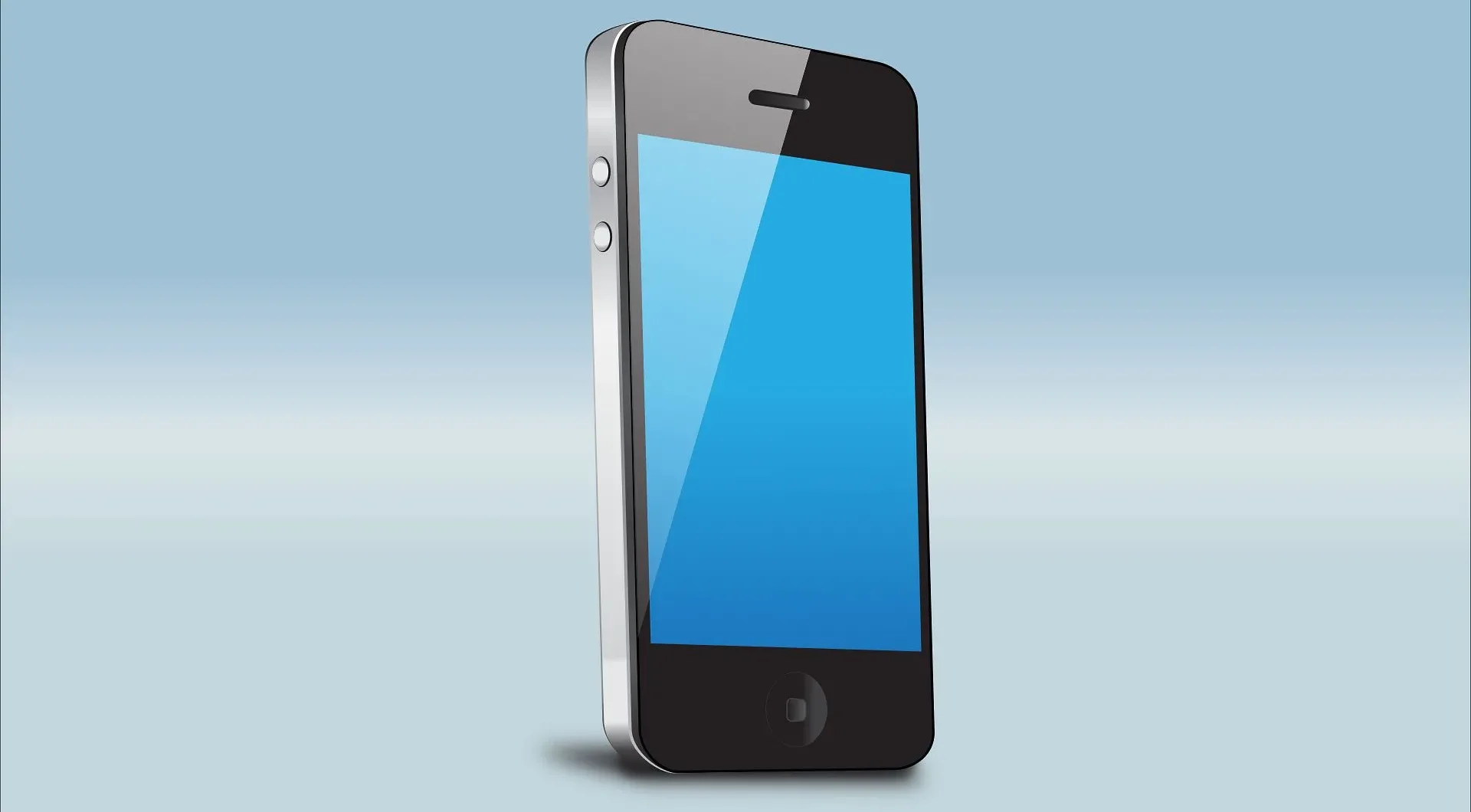
/cdn.vox-cdn.com/uploads/chorus_asset/file/25290333/STK255_Google_Gemini_C.jpg)
